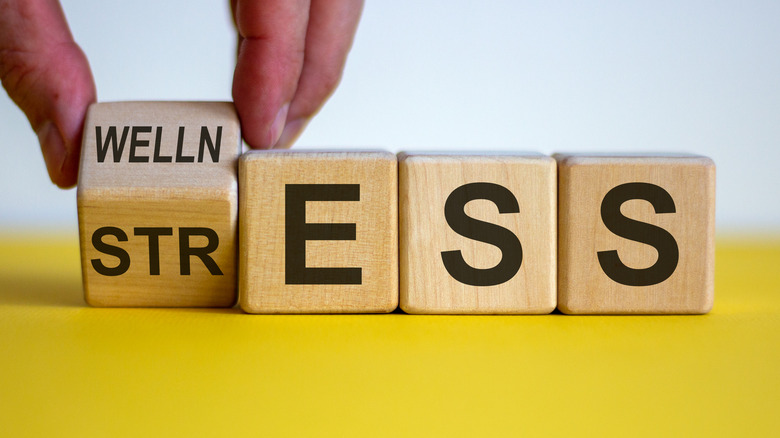Here's Why Your Nose May Be Twitching
The word twitch may be most often associated with the streaming platform nowadays, but it also describes when a body part experiences short spasms. Most body parts can twitch, and each body part might twitch for different reasons. The real reason your jaw twitches might have nothing to do with the real reason your eye is twitching. The real reason your legs are twitching is different still. This applies to nose twitches, too.
According to Healthgrades, nose twitches are fairly common, and they're just one type of facial spasm — others include mouth twitching and rapid, repetitive blinking or squinting. They're typically associated with stress, per the outlet, as the body twitches more often when experiencing higher amounts of stress as a way of expressing its overwhelming emotions. Therefore, if causes of stress are removed from your life, you're likely to experience decreased twitching.
Still, while stress can be a large reason why people experience nose twitches, it's not the only cause. Fortunately, nose twitches are usually nothing to fear — but there are times when you will want to consult your doctor.
Nose twitches can be caused from deficiencies and nerve damage, too
Outside of stress, two other potential causes for nose twitching are vitamin deficiencies and side effects from medications, according to Healthline. Vitamin deficiencies can cause twitches because they all help the body fully function, and muscles contract more when they don't have everything they need. Such deficiencies that can lead to this include, zinc, potassium, magnesium, iron, calcium, and vitamins B and E. Likewise, side effects from diuretics, hormones, asthma medications, statin medications, and high blood pressure medications can cause involuntary nose spasms, too.
Fortunately, since nose twitching usually means you're too stressed or you need vitamins, once you've balanced yourself out, the spasms usually stop on their own. And if they don't, Botox is even able to permanently stop twitches if they become repeatedly debilitating, per Realself.
But it's when the twitches continue to plague you that you should really pay attention, as the underlying issues are still there, and, in some cases, could be indicative of nerve damage, Realself notes. If you experience prolonged twitches, seeking medical attention is important.

